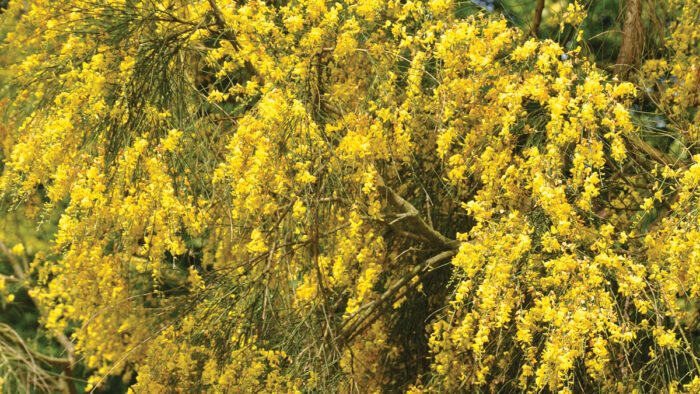
In an episode of Fine Gardening‘s podcast, Let’s Argue About Plants, the hosts discuss the importance of evergreen plants, and the particular perks of broadleaf evergreens:
“The key to any successful four-season garden is evergreens. Conifers are great, but they can be pricey and slow to bulk up. Broadleaf evergreens, on the other hand, bulk up quickly and are generally affordable. The only drawback is they can be boring. In fact, most gardeners think only of rhodies and hollies when it comes to this classification of plants.”
Don’t be fooled by the common varieties, there is much more to this plant category than one might think while walking around the local garden center. To help shed light on some fabulous, underappreciated broadleaf evergreens, we had regional experts pick their top four. Below, you’ll find great picks for the Northwest. To discover more fantastic evergreens, check out LAAP Episode 26: Broadleaf Evergreens.
Find broadleaf evergreens for other regions: Interesting Broadleaf Evergreens for Your Region
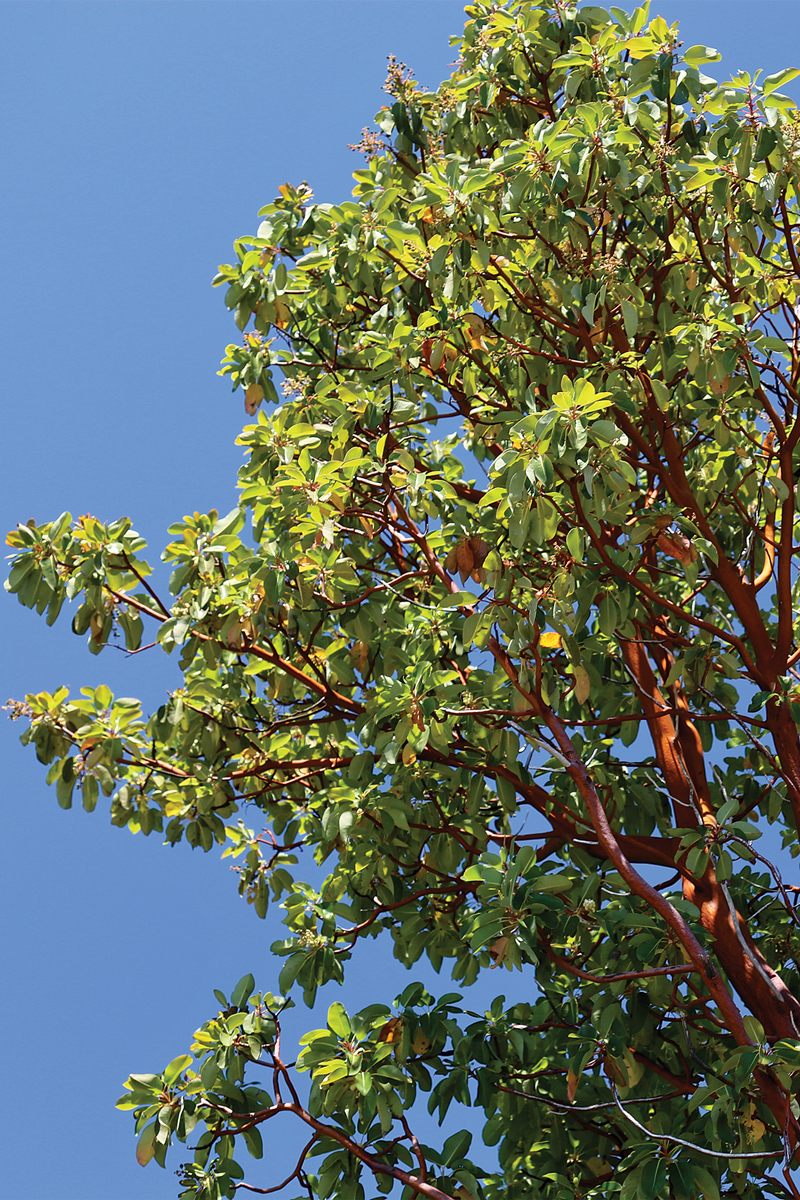
1. Pacific madrone
Name: Arbutus menziesii
Zones: 7–9
Size: 20 to 50 feet tall and wide
Conditions: Full sun; summer-dry, rocky soil
Native range: West coast of North America from British Columbia to Southern California
My favorite of all coastal BC natives, Pacific madrone is a contortionist that naturally sprouts from rock crevices and clings to the most precipitous cliffs. It has stunningly beautiful reddish-orange bark that peels off in papery strips, revealing layers of color that glow in the intense light of a coastal sunrise or sunset. This charismatic tree thrives on a mean and lean diet and will go kaput overnight when overly pampered. To get it established, opt for the youngest saplings available, site them carefully, and swiftly wean them from most care.
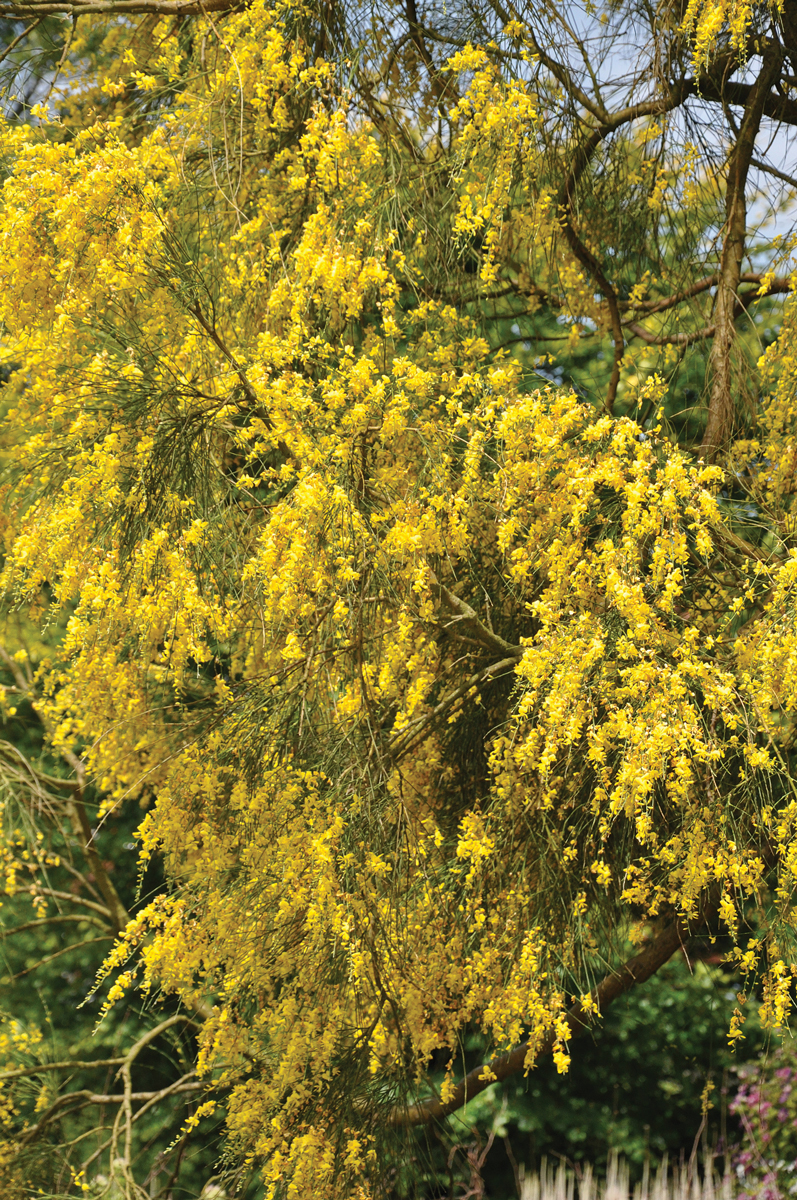
2. Mount Etna broom
Name: Genista aetnensis
Zones: 7b–10
Size: 15 to 20 feet tall and wide
Conditions: Full sun; well-drained, lean soil
Native range: Sicily, Sardinia
Mount Etna broom is a novelty that barely anyone knows of. Deprived of any substantial foliage, this tree casts almost no shade. Starting as a large shrub, it eventually develops irregular trunks and a rounded head of slender branches. Its abundant, pealike flowers turn the tree into a fragrant cloud of yellow in summer. One might argue that whatever small leaves this plant has are not evergreen; however, its finer, rushlike branches do remain bright green year-round. Naturally found in open, stony Mediterranean soil, this broom feels right at home in the hotter reaches of the Pacific Northwest.
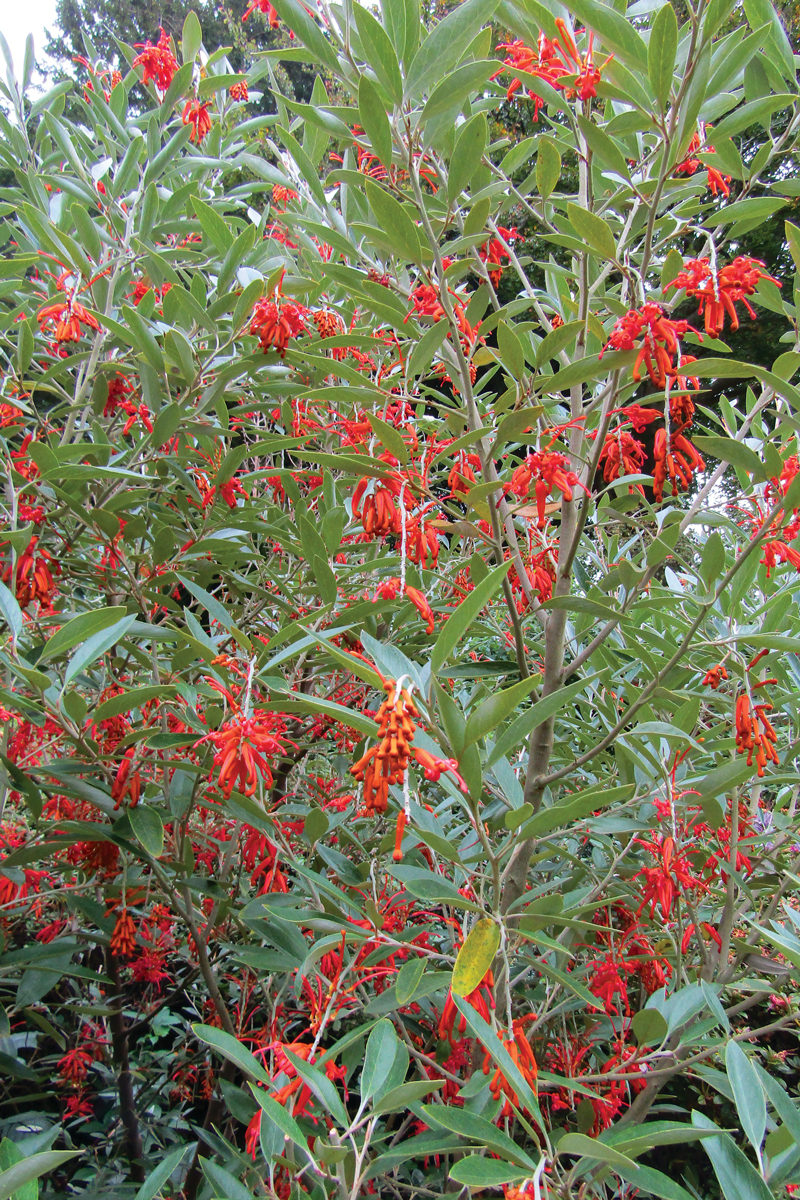
3. Royal grevillea
Name: Grevillea victoriae
Zones: 7b–10
Size: 8 feet tall and wide
Conditions: Full sun; well-drained soil
Native range: Southeast Australia
It is a feat for a plant to hold onto its foliage year-round, and a greater one yet to bloom during the cold season. Royal grevillea produces dangling clusters of tubular flowers through winter and into spring, interrupted only by the coldest snaps. It has a large, rounded form and rather small, dusty green leaves. While fairly drought resistant once established, it requires light but consistent watering to get going. The crazed attraction of our local hummingbirds to its flowers has me wondering how these two creatures have managed such perfect compatibility after evolving continents apart.
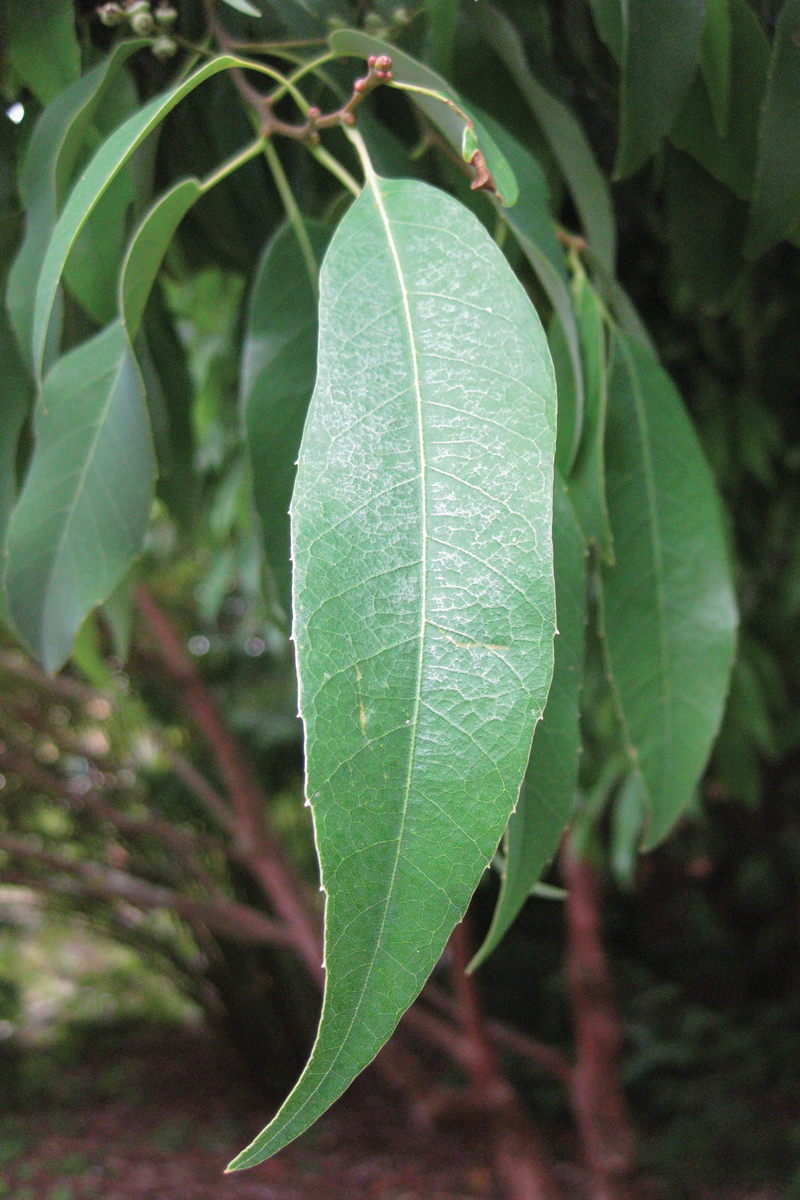
4. Chinese evergreen oak
Name: Quercus myrsinifolia
Zones: 7–10
Size: 20 to 50 feet tall and wide
Conditions: Full sun to partial shade; average to rich, moist, well-drained soil
Native range: South China, Laos, Japan
Most gardens call for modestly sized trees, and this Asian oak is a fitting candidate. It is an easy-to-grow species with few drawbacks. A moderate grower, it develops a full, rounded head of thick, glossy green leaves over time, accented with striking purplish new growth. The foliage is almost ficus-like, a far cry from our northern deciduous oaks. Every winter I marvel at the sight of this tree dusted in snow, not quite convinced that its lush foliage could ever withstand such sustained cold—and yet it does.
Dave Demers is a plant hunter, landscape designer, and horticulturist based in Vancouver, British Columbia.
Click here to find plant picks, garden tips, and more for the Northwest.
Fine Gardening Recommended Products
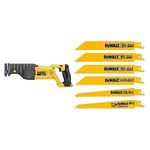
DeWalt Variable-Speed Cordless Reciprocating Saw with 6-Piece Saw Blade Set
Fine Gardening receives a commission for items purchased through links on this site, including Amazon Associates and other affiliate advertising programs.
- 18.31 x 6.13 x 4 inches
- 1-1/8-inch stroke length
- Variable speed trigger with 0-3000 spm
- DW4856 Metal/Woodcutting Reciprocating Saw Blade Set, 6-Piece
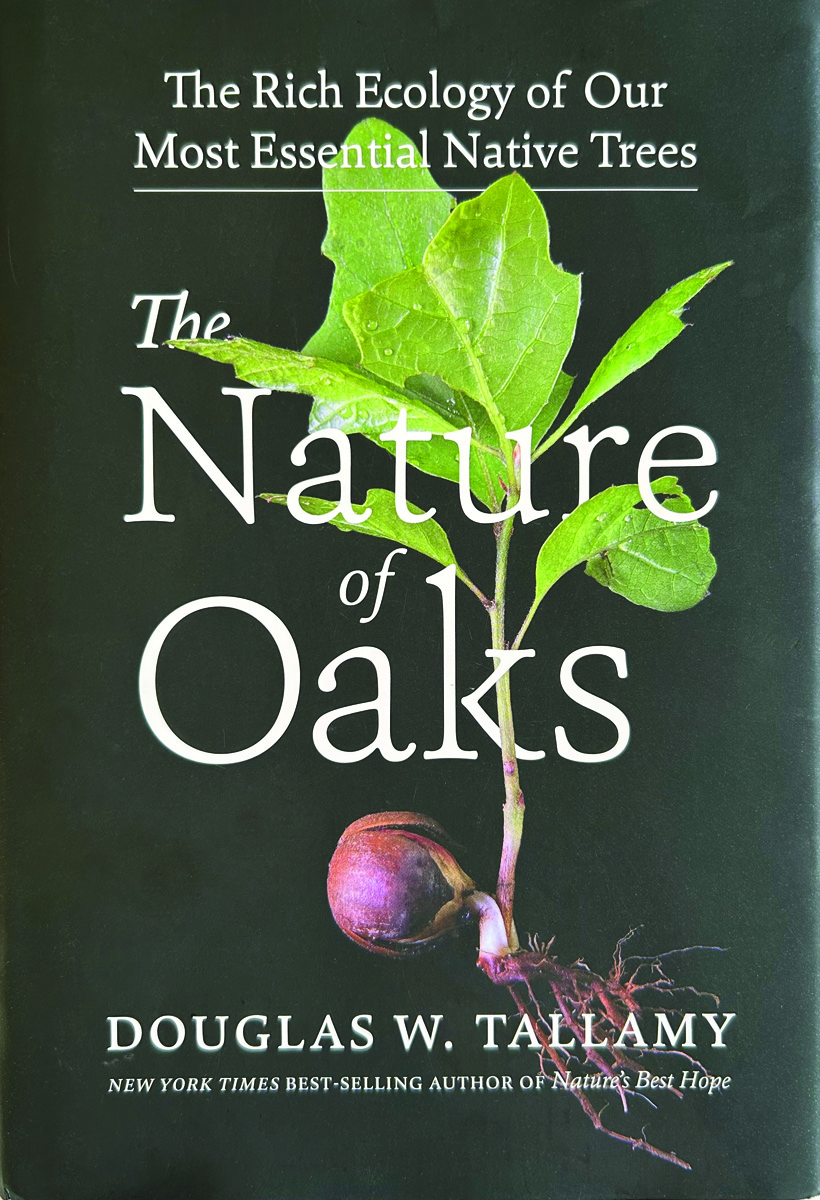
The Nature of Oaks: The Rich Ecology of Our Most Essential Native Trees
Fine Gardening receives a commission for items purchased through links on this site, including Amazon Associates and other affiliate advertising programs.
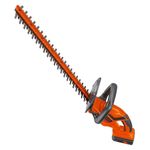
Black and Decker 22-inch Cordless Hedge Trimmer
Fine Gardening receives a commission for items purchased through links on this site, including Amazon Associates and other affiliate advertising programs.
- 38 x 7 x 7 inches
- 6.9 pounds
- 1 Lithium Ion battery required (included)


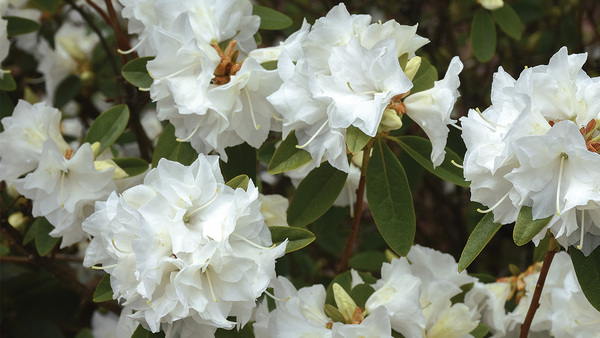
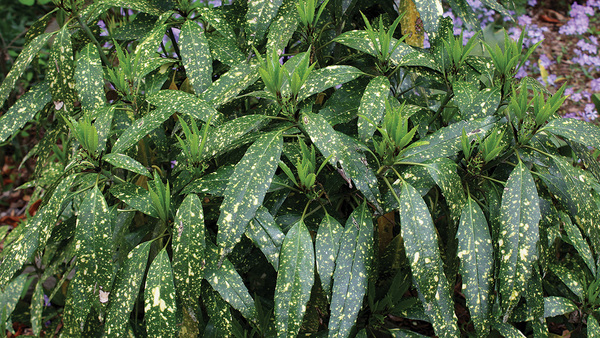

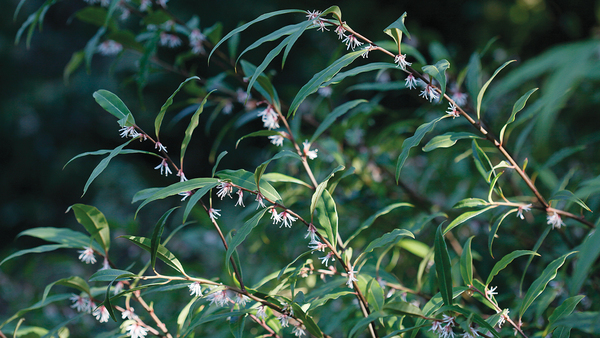
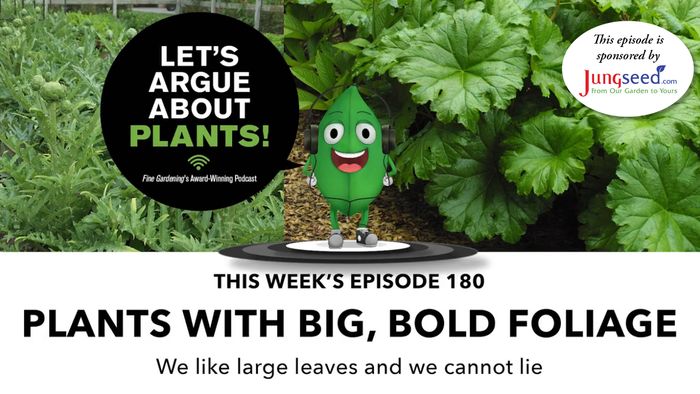
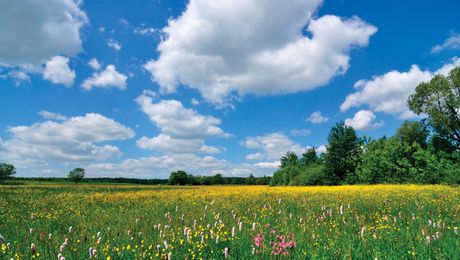
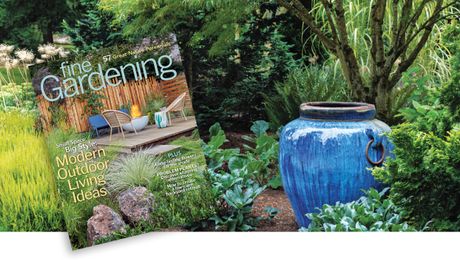










Comments
Log in or create an account to post a comment.
Sign up Log in